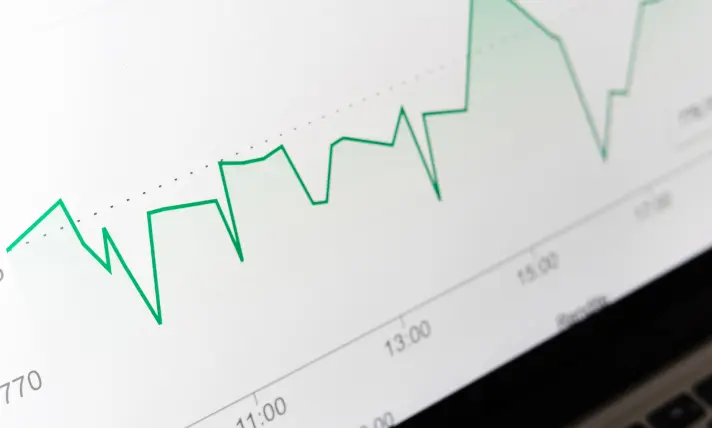The history of lending in the financial industry has long relied on the metrics of traditional credit scoring models—using payment history and debts as the basis of a person’s creditworthiness. However, since the invention of alternative credit, the FinTech industry has opened more lending opportunities. By utilizing the different types of alternative credit data, there’s now a more inclusive, innovative, and nuanced approach to a person’s financial behavior.
To help you understand more about what alternative credit scoring is,this blog discusses the various types of credit data that are changing lending systems. Understanding these can empower your business in making informed decisions regarding loan requests, and expand the access to credit of your clients with non-traditional financial backgrounds.
Understanding Alternative Credit Data
Alternative data for credit scoring encompasses a wide array of non-traditional data sources that provide insights into a person’s financial behavior. This data is generally utilized by open finance technology providers to get a more holistic view of a borrower’s financial profile.
While traditional credit scoring models primarily rely on factors like payment history, outstanding debts, and length of credit history, alternative credit data adds more information on an individual's financial habits. And by incorporating diverse information, your company (as a lender) can gain deeper insights into an applicant’s credit risk and make more accurate lending decisions.

So, What are the Types of Alternative Credit Data?
Traditional credit reports primarily focus on debt-related information like credit card balances, loan repayment history, and credit inquiries. Alternative data, on the other hand, uses other sources to gauge a person’s financial management. Here are some of the types of alternative data used in credit scoring:


Utility Payments
Timely payments for rent and utilities (electricity, gas, water) can be powerful indicators of a borrower's financial responsibility. A consistent payment history demonstrates an ability to manage recurring expenses, a crucial factor for your business as a lender.
For individuals who may lack a traditional credit history, a track record of on-time utility and rent payments can significantly improve their creditworthiness in an alternative scoring model.
To further simplify this, let’s say a person applying for a loan uses their Visa card to pay for their utilities. As the lender, you can use products like Visa card data to gain access to the borrower’s transaction history and base your decision in approving their loan application on their recurring Visa payments.

Rental Payments
The same idea goes for using rental payments as an alternative credit scoring data. Generally, rent payment histories provide insights into an individual's housing stability and financial reliability. On-time rental payments reflect a borrower's commitment to fulfilling financial responsibilities and can positively influence their creditworthiness assessments.

Bank Account Information
Analyzing bank account activity can provide valuable insights into a borrower's income and spending patterns. This can reveal their financial stability, responsible budgeting practices, and the ability to manage cash flow effectively.
As lenders, you can assess income consistency, identify excessive fees or charges, and even gauge a borrower's savings habits through their cash flow analysis.

Buy Now, Pay Later (BNPL) History
Responsible use of BNPL services shows a borrower's ability to manage credit responsibly. Timely repayments and adherence to BNPL payment plans can be positive indicators of creditworthiness when approving loans or credit applications. This is a more miniature way of gauging whether individuals are responsible debt payers.
The data gathered from BNPL transactions can be particularly helpful for younger borrowers who are new to traditional credit but have a proven track record of managing BNPL options.

Public Records
Verifying a person’s employment through public records can help confirm their income and establish their ability to repay a loan. This data can be especially relevant for freelancers or those with non-traditional employment arrangements.
If your company is an alternative lender, you can utilize public records to supplement the income information provided by the borrower—creating a more reliable picture of their financial standing.

Telco Data
Timely mobile phone bill payments can indicate a borrower's responsible financial behavior. Similar to utility payments, a regular payment history on phone bills highlights an ability to manage recurring obligations.
As an example, if a loan applicant uses GoPay to settle their phone bills, using products like Brankas' GoPay Data can give you insight as the lender on how they manage their financial obligations.
For individuals in developing economies where mobile phone penetration is high, using their telco data can be a valuable alternative data source for your company when credit scoring.

E-commerce Transaction History
The transaction history on e-commerce platforms can provide insights into a borrower's spending habits. Responsible online shopping behavior, such as avoiding excessive debt or adhering to budget limitations, can be positive indicators for credit scoring.
Analyzing a person’s purchase history can reveal responsible financial management and potentially differentiate between impulse buyers and calculated spenders.
Using any of these data can help your company as a lender check a buyer’s financial standing and management practices. However, while this information is important, it’s worth noting that these types of alternative credit data lenders use are still supplementary information assessed with traditional credit scoring standards.
Investing in Brankas’ Modern Financial Services
The use of alternative credit data has opened more opportunities in lending. By incorporating these diverse data points, you as lenders can move beyond the traditional credit reports and create a more detailed analysis of a borrower’s financial health. This not only empowers your business to make informed lending decisions but also expands access to credit to people who would otherwise have been excluded in the past.
Here at Brankas, we offer modern financial solutions to businesses through open finance technology. By utilizing our products like Brankas' API for Lenders, we create an easier and smoother lending process for both you and your clients. With our services, your business can implement a financial ecosystem that holds great promise for financial inclusion and a more dynamic credit system for all.





